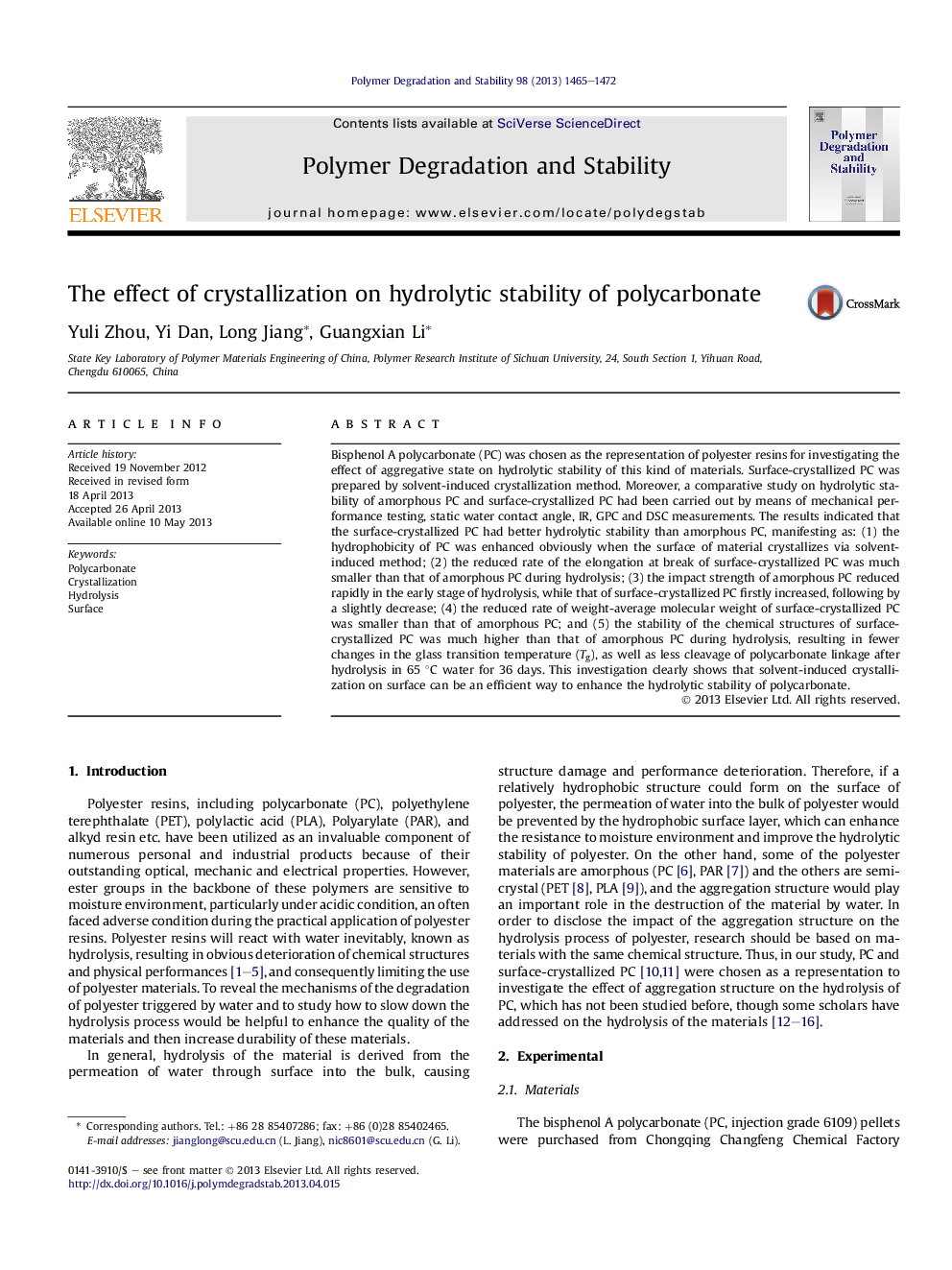| Article ID | Journal | Published Year | Pages | File Type |
|---|---|---|---|---|
| 5202224 | Polymer Degradation and Stability | 2013 | 8 Pages |
Abstract
Bisphenol A polycarbonate (PC) was chosen as the representation of polyester resins for investigating the effect of aggregative state on hydrolytic stability of this kind of materials. Surface-crystallized PC was prepared by solvent-induced crystallization method. Moreover, a comparative study on hydrolytic stability of amorphous PC and surface-crystallized PC had been carried out by means of mechanical performance testing, static water contact angle, IR, GPC and DSC measurements. The results indicated that the surface-crystallized PC had better hydrolytic stability than amorphous PC, manifesting as: (1) the hydrophobicity of PC was enhanced obviously when the surface of material crystallizes via solvent-induced method; (2) the reduced rate of the elongation at break of surface-crystallized PC was much smaller than that of amorphous PC during hydrolysis; (3) the impact strength of amorphous PC reduced rapidly in the early stage of hydrolysis, while that of surface-crystallized PC firstly increased, following by a slightly decrease; (4) the reduced rate of weight-average molecular weight of surface-crystallized PC was smaller than that of amorphous PC; and (5) the stability of the chemical structures of surface-crystallized PC was much higher than that of amorphous PC during hydrolysis, resulting in fewer changes in the glass transition temperature (Tg), as well as less cleavage of polycarbonate linkage after hydrolysis in 65 °C water for 36 days. This investigation clearly shows that solvent-induced crystallization on surface can be an efficient way to enhance the hydrolytic stability of polycarbonate.
Related Topics
Physical Sciences and Engineering
Chemistry
Organic Chemistry
Authors
Yuli Zhou, Yi Dan, Long Jiang, Guangxian Li,
